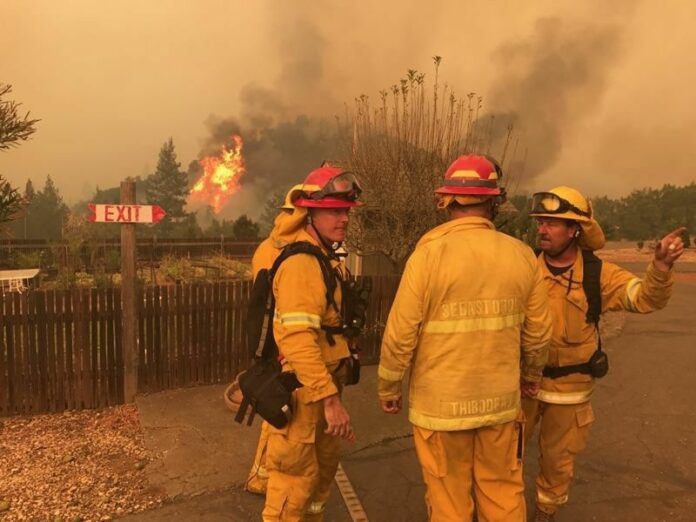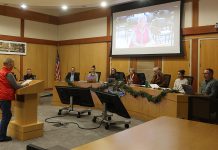June signals the start of fire season, ushering in what can be the busiest and most stressful time of year.
June is also Post Traumatic Stress Injury Awareness Month and Sonoma County fire departments and districts are emphasizing the importance of mental care and of the Employee Assistance Program, which offers counseling and care for things like post traumatic stress or even domestic violence.
“We’ve always kind of had something in place, but really it all started rolling and changing when we got a new chief and he put me through an IFF (International Association of Firefighters) peer support program,” said Amanda Newhall, an engineer with the Healdsburg Fire Department and their peer support program lead. “That kind of started the conversation for us to do a little bit more.”
“It allowed us to look at an audit and we found from there, being a combination department — Healdsburg has both career full-time staff and also a reserve association volunteer staff who work part-time, that we had an employee assistance program (EAP),” Newhall said.
Newhall said at first the reserve/part-time firefighters were not in the program, but since then everyone has been on board.
She said this is especially important since a lot of the reserves go on the same calls as full-time firefighters.
“The employee assistance program is pretty great, it allows us to have insurance through the city where if I go on a bad call and I say, ‘You know what, I need someone to talk to,’ there’s counselors that the EAP will pay for,” Newhall said.
Moments of stress that hit her hard stem from responding to calls that can be relatable, she said.
“For me, when I see someone out there near my age doing the right thing early in the morning, riding their bike or running and they just get mowed over by a car, or there is a freak accident and it is traumatic, that hits me a little bit hard … I think the same goes for every single person if they’re relatable,” Newhall said.
She added moments of stress often don’t always follow logic.
“It doesn’t even have to make a lot of sense. I had one person say that they had a patient say the same exact words a family member said right before they passed away and they carried that for a long time and didn’t even realize it,” Newhall said.
So in addition to the EAP, the department has been working on preventative care.
“We’ve done safety stand downs on suicidal awareness and things like that, but we try to make a focus more on resiliency and basically having those tools in your pocket and knowing what works for you,” she said.
Tools for dealing with stress could range from anything as simple as playing a favorite instrument to working on meditation.
Mark Heine, Sonoma County Fire District Chief, said their agency also gets free counseling from the EAP.
Heine said this type of care is important since, “PTSD is something we need to talk about.”
“Behavioral health is at the top of my priority list for employee health and wellness,” Heine said.
A major moment of stress that Heine spoke of was during the 2017 Sonoma Complex Fires.
“They went on the front lines of the Tubbs Fire, running into it,” Heine said.
He said that another stress factor was the fact that many of the first responder’s homes and families were also in the line of fire.
He said when he first got into the public safety field, PTSD wasn’t something that was often talked of, or thought of, but now it is important to do so.
“It can build up,” he said.
In addition to the EAP he said, “This week, all of our members will attend comprehensive training on behavioral health that is focused on tools and techniques for emergency responders to stay emotionally healthy and to maintain healthy relationships with loved ones. The class will also teach them the many resources available to them to help them manage PTSD-related concerns.”









